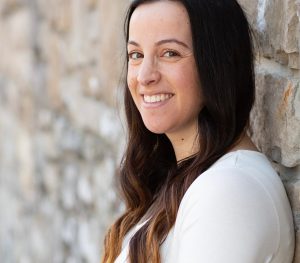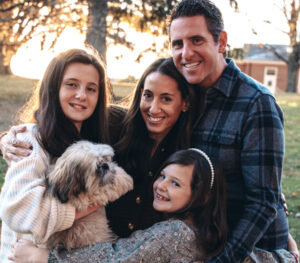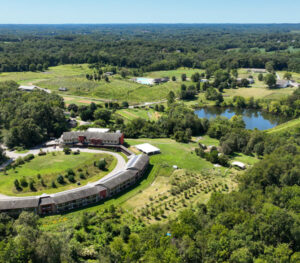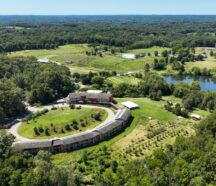Color wars and campfires… water sports and talent shows… holiday meals, musical productions, tournaments and traditions.
Is Your Child Ready for Overnight Camp? Finding the Right Fit
Summers spent at an overnight camp are all that and more. Research shows that attending an overnight camp also builds confidence and encourages independence – as well as creates friendships that often last a lifetime.
Yet how do you know if your youngster is ready to spend several weeks away from home? And, with a dizzying array of options, from general to specialty camps that focus on sports or arts, to even inclusion camps geared toward individuals with disabilities, it’s important to find the right match.
Alli Muser, Camp Connector at the Center for Jewish Education, helps families navigate the process of selecting a Jewish camp and has this advice for parents. Begin early, talk to other families and include your child in the process.
Here are five tips from Muser to help you find the right fit.
1. Meet with Alli Muser. Muser offers a free, personalized consultation to families interested in Jewish camp. She will talk to parents in person or on the phone to determine what works for their family and child and narrow the possibilities down to three or four camps to investigate.
To best assist, she may ask you to describe your child and, in particular, his or her personality and interests. She may also ask questions to get a better sense of what you’re looking for: Are you looking for a co-ed or single-sex environment? How far away are you willing to send your child? How many weeks are you looking for? What does Judaism look like for you and your family at home?
2. Research these options. Once you have a list of possible camps that fit your child’s interests, take a moment to narrow down the options. Go online to learn more about each camp, talk to the camp directors and get information and names of other camper families that you can contact to give you an unbiased view of what they like and don’t like.
In addition, attend one of The Center for Jewish Camping’s special events throughout the school year, in which 13 partner camps come together to offer hands-on activities that focus on Jewish learning. In addition, The Center exhibits at a number of area festivals.
3. Schedule time to visit. You wouldn’t think of sending your teen off to college without touring the campus. Why not have the same attitude about camp? After all, this is the first time your child will be living away from home, even if it’s a few weeks.
Many camps offer tours throughout the year, which provide a chance for your future camper to explore the campus, see the bunks, dining hall and activities. If you can, think about visiting during the summer when your child can see camp “in action.”
“The more a camper is familiar with the environment, the easier it will be for them to acclimate,” says Adam Broms, camp director of Capital Camps, located in Waynesboro, Pa.
Marty Rochlin, director of Camp Airy in Western Maryland estimates that between 75 and 80 percent of first-time families will take a tour prior to attending camp.
As for younger siblings, who have an older brother or sister at camp, Rochlin advises families to also tour as all kids are different and siblings often have different interests. “Each child needs to see himself or herself in the camp environment.”
4. Ask the right questions. Whether speaking to a camp director by phone, or visiting on a tour, asking the right questions can help determine the best fit for your child and for your family. Questions can include: what makes your camp different, how do you train your staff, do you offer a diverse group of activities or how will parents communicate with the camp and what do counselors do to help acclimate a first-time camper. Families can also address cost and whether a camp offers scholarships or financial assistance.
5. Try a “mini” experience. Many camps offer a mini-week for rookie campers that feature smaller bunks comprised of all first-time campers. These youngsters get to experience the full range of camp activities and get adjusted to the camp experience so that they are excited about returning for a longer session the following year.
Another new program is the family camp, weekends or short weeks at the campsite. Campers and parents participate in some activities side-by-side, other times they join their peers in programming.
“Children gain confidence while their parents are there,” explains Broms. Capital Camps offers several family camp options throughout the year, including a summer family camp and a New Year’s option as well.
In addition to family camp, Camps Airy and Louise, offers a “Camper in Training” Day, a one-day experience with family experience with two tracks, one for the camper and one for the parents, which includes information and camp activities like zip-lining and learning a new craft.
For more information, contact Alli Muser at camping@cjebaltimore.org or 201-417-0294.
Subscribe to our newsletter
The Associated is a home for everyone in the Baltimore Jewish community. We offer several email lists to help people find a community, engage with their peers and support Jewish journeys around the world.
Join Our Mailing ListAdd Impact to Your Inbox
Sign up for our newsletter
Subscribe to our newsletter
The Associated is a home for everyone in the Baltimore Jewish community. We offer several email lists to help people find a community, engage with their peers and support Jewish journeys around the world.
Join Our Mailing List









 Please Wait while we loading your video.
Please Wait while we loading your video.